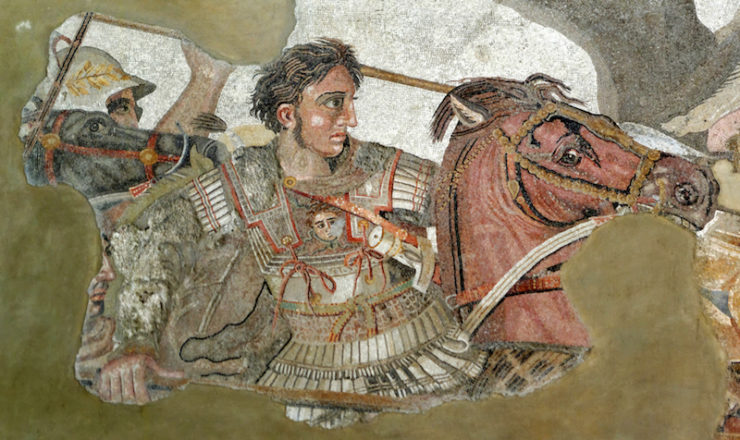How do you build upon the legend of Alexander the Great, king and conquerer, legendary military commander, namesake of one of the most significant ancient repositories of knowledge? You send him into the stratosphere and you make him her.
Kate Elliott, whose Court of Fives series recently concluded with Buried Heart, is writing a new trilogy for Tor Books: The Sun Chronicles, pitched as “genderbent Alexander the Great as space opera in a series of linked volumes that tell the story of an imperial conquest and how it breaks down after the death of its charismatic leader.” It’s a great pitch, but it begs the question: Where’s the connecting line from ancient Greece to futuristic space opera?
Elliott let us in on her thought process:
I admit it: The history and legend of Alexander the Great has always fascinated me, to the point that the first of my twin boys through the breach (as it were) is named Alexander.
Such a story folds so easily into space opera, a sub-genre whose roots in opera mean its bold gestures and vivid colors can be slightly outrageous, slightly ridiculous, and utterly serious in performance. Add to that my long-held desire to write a woman as a truly charismatic leader of the legendary kind so much of our literature (and historical memory) reserves only for men.
So why not throw in sea monsters, pop idols, seers who can see heat and lies, gene-engineered humans and their various cultures based on vague misunderstandings of scraps of vanished Earth history?
There would be space battles for sure and an ensemble cast of intensely motivated people, ancient voyaging ships still plying their slow routes and a modern high-speed beacon space-ways system—like a combination of the Persian Empire’s Royal Roads and the London Underground—if the paths and lines had fallen to ruin and were now haunted.
Why not? I asked myself.
And so I did.
But is there a Library of Alexandria in space?
Book I of The Sun Chronicles will be published in 2019, with the next two volumes following in 2020 and 2021.
Photo: Berthold Werner (Naples, National Archaeological Museum, Alexander Mosaic) via Wikimedia Commons










